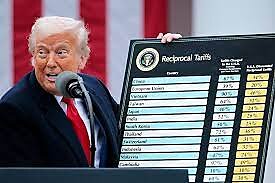The new UK-US trade deal, announced with fanfare as a major step in transatlantic economic relations, offers little benefit to the UK’s automotive sector, according to the audit and tax experts at Blick Rothenberg.
The deal — officially titled the General Terms for the United States of America and the United Kingdom of Great Britain and Northern Ireland Economic Prosperity Deal — will reduce tariffs on British car exports to the US from 27.5% to 10%. However, Robert Salter, Director at Blick Rothenberg, argues the agreement merely limits the damage caused by President Trump’s previous protectionist policies and does not open new market opportunities.
“While a 10% tariff is clearly better than the 27% imposed under President Trump, it’s important to remember that under the previous administration of Joe Biden, UK car imports faced only a 2.5% tariff,” said Salter.
The 10% tariff will apply only to the first 100,000 vehicles imported into the US each year. The UK exported approximately 101,000 vehicles to the US last year, meaning the agreement effectively caps growth.
“This limit means that the UK automotive sector cannot expand exports to the US without being hit with higher tariffs,” Salter explained. “All the deal does is preserve the status quo — it doesn’t help the sector grow.”
He added that, while the agreement might safeguard existing jobs and exports, it does not create any meaningful new commercial advantages or incentives for investment in UK automotive production for the US market.
Salter also questioned the broader economic value of the deal, calling it a limited framework that falls short of delivering macroeconomic gains.
“While the agreement might provide a foundation for more meaningful trade terms in other sectors, this deal by itself will not deliver significant wins for the overall UK economy,” he said.
The comments contrast with more optimistic reactions from some corners of government and industry following the deal’s announcement, which included tariff relief for UK steel and certain other exports.
The Society of Motor Manufacturers and Traders (SMMT) previously welcomed the deal for removing “an immediate threat” to exports, but experts like Salter warn that this should not be confused with progress.
“This is a damage-limitation agreement,” Salter concluded. “It prevents further harm — but it’s not a trade win in the way it’s being presented.”
As the UK looks to boost exports and grow its manufacturing base, Salter urged policymakers to pursue more ambitious, sector-specific trade terms — particularly in high-value export industries like automotive, aerospace, and green technology.
With domestic car production under pressure and trade competitiveness increasingly vital, the latest deal may have bought the UK some time — but not the breakthrough the automotive sector needs.
Read more:
US trade deal is not a win for UK automotive industry








